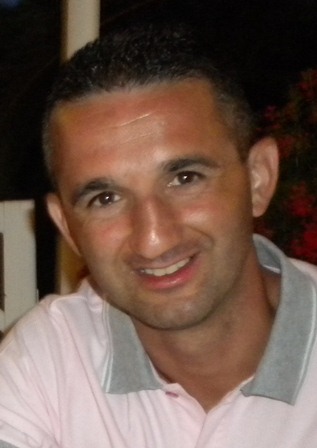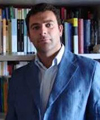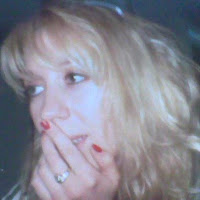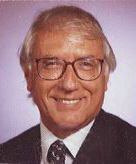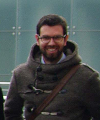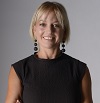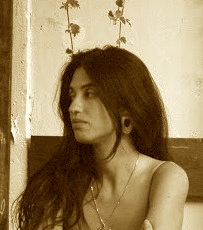Studying at the University of Verona
Here you can find information on the organisational aspects of the Programme, lecture timetables, learning activities and useful contact details for your time at the University, from enrolment to graduation.
Academic calendar
The academic calendar shows the deadlines and scheduled events that are relevant to students, teaching and technical-administrative staff of the University. Public holidays and University closures are also indicated. The academic year normally begins on 1 October each year and ends on 30 September of the following year.
Course calendar
The Academic Calendar sets out the degree programme lecture and exam timetables, as well as the relevant university closure dates..
| Period | From | To |
|---|---|---|
| Sem. IA (31.10.16 sosp.lezioni) | Oct 3, 2016 | Nov 12, 2016 |
| Sem. IB | Nov 14, 2016 | Jan 21, 2017 |
| Sem. IIA | Feb 27, 2017 | Apr 22, 2017 |
| Sem. IIB | Apr 24, 2017 | Jun 10, 2017 |
| Session | From | To |
|---|---|---|
| Sessione d'esami invernale | Jan 23, 2017 | Feb 25, 2017 |
| Sessione d'esame estiva | Jun 12, 2017 | Jul 29, 2017 |
| Sessione d'esami autunnale | Aug 21, 2017 | Sep 23, 2017 |
| Session | From | To |
|---|---|---|
| Sessione di Laurea Estiva | Jul 10, 2017 | Jul 15, 2017 |
| Sessione di Laurea Autunnale | Dec 18, 2017 | Dec 21, 2017 |
| Sessione di Laurea Invernale | Mar 23, 2018 | Mar 29, 2018 |
| Period | From | To |
|---|---|---|
| Festa di Ognissanti | Nov 1, 2016 | Nov 1, 2016 |
| Festa dell'Immacolata | Dec 8, 2016 | Dec 8, 2016 |
| Vacanze Natalizie | Dec 23, 2016 | Jan 7, 2017 |
| Vacanze Pasquali | Apr 14, 2017 | Apr 18, 2017 |
| Festa della Liberazione | Apr 25, 2017 | Apr 25, 2017 |
| Festa dei Lavoratori | May 1, 2017 | May 1, 2017 |
| Festa del Santo Patrono - San Zeno | May 21, 2017 | May 21, 2017 |
| Festa della Repubblica | Jun 2, 2017 | Jun 2, 2017 |
| Vacanze Estive | Aug 14, 2017 | Aug 19, 2017 |
Exam calendar
Exam dates and rounds are managed by the relevant Culture and Civilisation Teaching and Student Services Unit.
To view all the exam sessions available, please use the Exam dashboard on ESSE3.
If you forgot your login details or have problems logging in, please contact the relevant IT HelpDesk, or check the login details recovery web page.
Should you have any doubts or questions, please check the Enrollment FAQs
Academic staff
 maurizio.boscaini@univr.it
maurizio.boscaini@univr.it
 paolamaria.caleffi@univr.it
paolamaria.caleffi@univr.it
 paolodalben@tin.it
paolodalben@tin.it
 mila.dallapreda@univr.it
mila.dallapreda@univr.it
 ettore.deangeli@univr.it
ettore.deangeli@univr.it
 maxclaudiogallo@gmail.com
maxclaudiogallo@gmail.com
 mariangela.lando@univr.it - marilando771@gmail.com
mariangela.lando@univr.it - marilando771@gmail.com

Mastrocinque Attilio
 attilio.mastrocinque@univr.it
attilio.mastrocinque@univr.it
 +39 045802 8386
+39 045802 8386
 marco.menato@univr.it
marco.menato@univr.it

Migliorati Lorenzo
 lorenzo.migliorati@univr.it
lorenzo.migliorati@univr.it
 045802 8135
045802 8135
 giuseppe.pernigo@univr.it
giuseppe.pernigo@univr.it
 alberto.scandola@univr.it
alberto.scandola@univr.it
Tani Stefano
 stefano.tani@univr.it
stefano.tani@univr.it
 +39 045802 8110
+39 045802 8110
 silvano@tommasoli.it
silvano@tommasoli.it
 ivan.valbusa@univr.it
ivan.valbusa@univr.it
Study Plan
The Study Plan includes all modules, teaching and learning activities that each student will need to undertake during their time at the University.
Please select your Study Plan based on your enrollment year.
1° Year
| Modules | Credits | TAF | SSD |
|---|
2° Year activated in the A.Y. 2017/2018
| Modules | Credits | TAF | SSD |
|---|
One course to be chosen among the following3° Year activated in the A.Y. 2018/2019
| Modules | Credits | TAF | SSD |
|---|
One course to be chosen among the followingOne course to be chosen among the following| Modules | Credits | TAF | SSD |
|---|
| Modules | Credits | TAF | SSD |
|---|
One course to be chosen among the following| Modules | Credits | TAF | SSD |
|---|
One course to be chosen among the followingOne course to be chosen among the following| Modules | Credits | TAF | SSD |
|---|
Legend | Type of training activity (TTA)
TAF (Type of Educational Activity) All courses and activities are classified into different types of educational activities, indicated by a letter.
Type D and Type F activities
| years | Modules | TAF | Teacher |
|---|---|---|---|
| 1° 2° 3° | Laboratory of History of Theatre | F |
Simona Brunetti
(Coordinator)
|
| years | Modules | TAF | Teacher |
|---|---|---|---|
| 1° 2° 3° | Laboratory of History of Theatre | F |
Simona Brunetti
(Coordinator)
|
| years | Modules | TAF | Teacher | |
|---|---|---|---|---|
| 3° | Communication and human resources management | D |
Serena Cubico
(Coordinator)
|
|
| 3° | Data elaboration laboratory | F |
Maurizio Boscaini
(Coordinator)
|
|
| 1° 2° 3° | Professional interview | F |
Riccardo Sartori
(Coordinator)
|
|
| 1° 2° 3° | Creative workshop in business communication | F |
Riccardo Sartori
(Coordinator)
|
|
| 1° 2° 3° | Sociology of Communication | F |
Lorenzo Migliorati
(Coordinator)
|
|
| 1° 2° 3° | Sociology of Mass Communication (p) | F |
Lorenzo Migliorati
(Coordinator)
|
|
| years | Modules | TAF | Teacher | |
|---|---|---|---|---|
| 3° | Communication and human resources management | D |
Serena Cubico
(Coordinator)
|
|
| 1° 2° 3° | Creative workshop in business communication | F |
Riccardo Sartori
(Coordinator)
|
|
| 1° 2° 3° | Laboratory of radio languages | F |
Tiziana Cavallo
(Coordinator)
|
|
History and Criticism of the Cinema SC (i) (2017/2018)
Teaching code
4S02211
Teacher
Coordinator
Credits
6
Also offered in courses:
- History and criticism of cinema of the course Bachelor's degree in Foreign Languages and Literatures
Language
Italian
Scientific Disciplinary Sector (SSD)
L-ART/06 - CINEMA, PHOTOGRAPHY AND TELEVISION
Period
First half of Semester 1 , Second half of Semester 1
Learning outcomes
Knowledge of the history of cinema and the method of analysis of the film. The course aims to provide students with the fundamental cornerstones of the history of cinema, which will be re-read in light of the relationship between the evolution of filmic language and the cultural transformations of society. The most important junctions that have characterized the history of cinema, such as the era of silent music, classical Hollywood, neorealism, the revolution of the nouvelles vagues and the advent of digital technology will be tackled. The student must be able to contextualize a specific film in the historical period in which the film was produced and demonstrate not only historical or theoretical knowledge, but also the ability to process this knowledge in a well-written and argued synthesis. The objective of this course, in short, is therefore to provide the student with the opportunity to acquire the historical and theoretical foundations for decoding, interpreting and analyzing the audiovisual products of contemporary visual culture.
Program
The course aims to provide the student with an overview of the evolution of film language from the origins to the present. These are some of the topics covered: the European avant-gardes of the 1920s, totalitarian movies, Hollywood classic cinema, Italian neo-realism, Nouvelle Vague, Italian cinema of the sixties. Particular emphasis will be put on the problem of realism, a theoretical horizon that is still present at a time when new technologies seem to emancipate the camera from contact with reality.
FILM:
Greed (Stroheim), Un chien andalou (Bunuel), Quarto Potere (Welles),Roma città aperta (Rossellini), La donna che visse (Hitchcock), La valle dell'Eden (Kazan), Fino all'ultimo respiro (Godard), La grande guerra (Monicelli), L'avventura (Antonioni), Una moglie (Cassavetes, L'enfant (Dardenne), Pulp Fiction (Tarantino), History of violence (Cronenberg), Inglorius bastards (Tarantino).
Gli studenti NON FREQUENTANTI sostituiranno gli appunti delle lezioni con la lettura di questi due saggi:
1. A. Sainati, M. Gaudiosi, Analizzare i film, Marsilio 2009.
2. P. Bertetto, a cura di, Azione! Come i registi dirigono gli attori, Minimum Fax, Roma 2001.
Dovranno comunque visionare i 13 film in programma.
| Author | Title | Publishing house | Year | ISBN | Notes |
|---|---|---|---|---|---|
| Alberto Scandola | GREED | MIMESIS | 2017 | 9788857538594 | |
| Giulia Carluccio, Luca Malavasi, Federica Villa | IL CINEMA. PERCORSI STORICI E QUESTIONI TEORICHE | CAROCCI | 2015 | ||
| GIAIME ALONGE | Il cinema: tecnica e linguaggio. Un'introduzione | KAPLAN | 2015 |
Examination Methods
Written exam: three open questions. The questions will be three. The student must demonstrate mastery of the elements of film language, knowledge of the main junctions of film history and the ability to analyze the film texts in the program. In the answers, attending students will have to apply the method of film analysis learned in lesson and also mention the fragments of sequences shown in the classroom.YOU AGREE THAT YOU MAY HAVE TO BE TAKEN UP TO 5 MIN BEFORE THE END OF THE TEST, BUT ONE TIME DELIVERED THE TASK WILL NOT BE REFUSED BY THE VOTE.
Career prospects
Module/Programme news
News for students
There you will find information, resources and services useful during your time at the University (Student’s exam record, your study plan on ESSE3, Distance Learning courses, university email account, office forms, administrative procedures, etc.). You can log into MyUnivr with your GIA login details: only in this way will you be able to receive notification of all the notices from your teachers and your secretariat via email and soon also via the Univr app.
Graduation
Documents
| Title | Info File |
|---|---|
|
|
pdf, it, 263 KB, 09/02/22 |
List of theses and work experience proposals
| theses proposals | Research area |
|---|---|
| Laureandi Scienze della Comunicazione: vademecum | Various topics |
| Stage | Research area |
|---|---|
| L'iter del libro in biblioteca | Various topics |
| Proposte stages - Centro di ricerca Skenè | Various topics |







